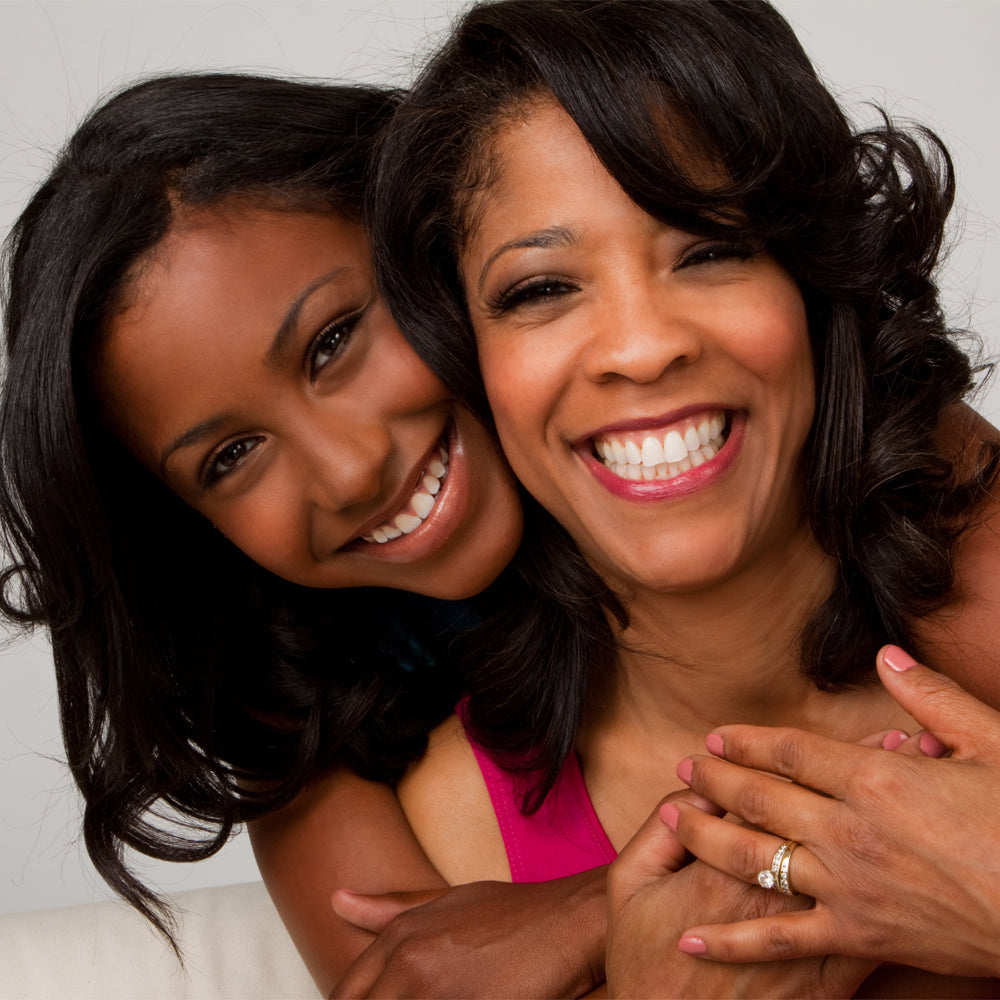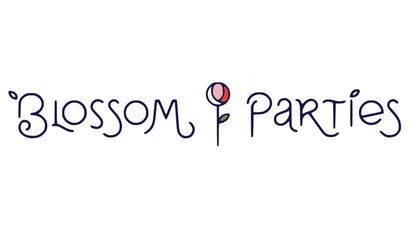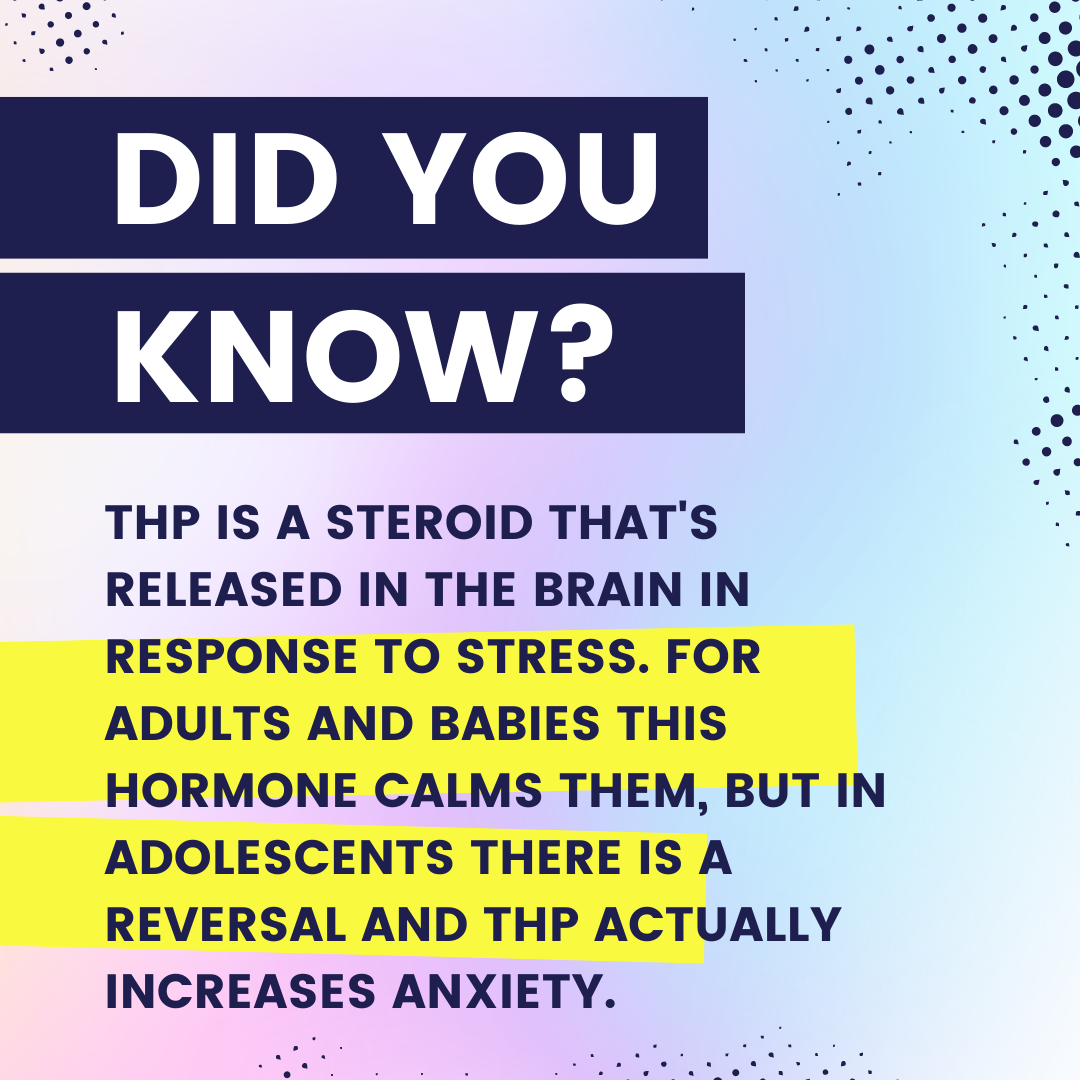
One distinct memory I have when I was 10 was my mom coming into my bedroom with a large pack of pads in her hand and saying “You’re going to need these one day.” Then she set them down and that was that. THAT was my period talk. A couple years later, when my period still hadn’t arrived, I found a vintage book from the 50’s that had mysteriously appeared in my room with info about becoming a woman. Of course I read it cover to cover because all I wanted to be was grown up, but ideas and suggestions in the book were outdated (and this was pre-Google)
My mom never really talked with me about my period or puberty. Her own mother probably didn’t discuss it with her either. So when I did finally start my period, I didn’t tell her. I didn’t think she wanted to know. The door wasn’t open for communication. And in talking with women my own age about it later in life, they had similar first period stories. They shared stories that lacked preparation or communication from their mothers. It was interesting that there seemed to be a shut door between mothers and daughters regarding these physiological changes.
These days we have so much information available to us whenever we want it that it’s easy for a girl to gather data about the changes her body is going through. All the reproductive health education and google searches can’t take the place of a mother or mother-figure who is present and ready to acknowledge the fact that she’s growing into a young woman.
PLAN AHEAD
If you can plan ahead, start as soon as possible. Your daughter will probably begin showing signs of puberty before her first period arrives. A couple signs are the development of breast buds, pubic hair and hair under her arms. Her chest could be tender during this phase so bra shopping may be in order. Even if you feel she has nothing to “support’’ with a bra, the fact that you’re acknowledging her changing body will help her accept the changes positively. Use this time to fill in the gaps in your own knowledge about puberty and menstruation so you’re prepared for her questions.
OPEN UP A DIALOGUE
As an adult woman, a period is something you’re so used to you don’t even think twice about it, but for a young woman, a first period can be shrouded in mystery. The sooner you begin communicating about what a period is, why women have periods and what we do during our cycle, the less anxious she’ll be when her first period arrives. If you haven’t talked to her about these things before and are feeling uncomfortable about, consider purchasing a book or gift that will allow you to sit down and open up a dialogue with her. However uncomfortable you are, she’ll be more uncomfortable and you can set the tone by showing her there’s nothing to be uncomfortable, embarrassed or shameful about.
GATHER SUPPLIES
Even if you have your own period supplies at home, consider shopping for and having a special storage area for her supplies. While you may love your menstrual cup, she might not be comfortable with using one yet. You could use tampons, but she may prefer to use only pads. Have a variety of products ready for her as well as a separate bag or kit for school that also includes a change of underwear and pants.
SHIFT YOUR PERSPECTIVE
What are your own thoughts about your period right now? Is it a beautiful cycle you’ll cherish until menopause? Is it a total inconvenience to your life? Do you only associate your period with pain and mood swings? Maybe you don’t even experience a menstrual cycle anymore. It's important to understand that she’s having her own brand new experience and learning what having a period means and how it affects her life. Take a moment to remember what it was like to be her age and to have that experience for the first time. What can you bring to her first experience that you didn’t have for your own?
TEACH ABOUT CYCLES AND PERIOD TRACKING
One thing that’s obvious to adult women but might not be so obvious to young women is that a period happens each month. One reason for this is because a period can be sporadic when you first begin menstruating and another reason is that girls growing into young women haven’t experienced anything quite as cyclical as a period yet. So the fact that it arrives each month might catch them by surprise and unprepared. When you’re shopping for supplies, pick up a calendar and show her how to count the days from the start of one period to the beginning of the next. Day 1 is the first day of your period. Day 14 is typically the day you ovulate. Day 28 is the last day before your period arrives again, then you’re back at Day 1. In the week leading up to her next period, make sure she has supplies with her just in case it arrives early.
MAKE THE MOMENT A HAPPY ONE
When she tells you she got her period for the first time, celebrate her. No matter how painful or gross or inconvenient you feel like a period is, the change is more than just the fact of menstruation, it’s a sign that she’s grown from girl to young woman and is increasingly autonomous over her own life and body. You may have your own fears about her growing up, but projecting those anxieties onto her can leave a deeper and longer impression than you may realize. Do something special just for her to let her know that you’re available to support, encourage and provide wisdom to help her navigate this new and exciting phase of her life.


